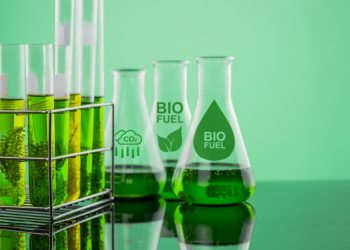Speaking to Bunkerspot, United European Car Carriers’ (UECC) Energy & Sustainability Manager, Daniel Gent, told that shipowners and operators looking to comply with the European Union Emissions Trading System (EU ETS) are likely to turn to biofuels.
According to Mr. Gent, the European Union Emissions Trading System (EU ETS) and the FuelEU Maritime, part of the Fit for 55 package, are ‘two of the biggest bits of legislation we’ve ever seen’.
Namely, the UECC Energy & Sustainability Manager expects to see an increase in biofuel demand because this fuel can give easy and immediate reduction of CO2 emissions.
As for UECC, it is:
Broadening our scope to bio-LNG as well, and we have some interesting projects where we’re looking to secure on long-term contracts – 5+ years – molecules with a bio-LNG supplier
Bio-LNG can be used to supply UECC’s latest gas-powered vessels, with Mr. Gent noting that with the price differential between LNG and LBG shrinking significantly in recent months, these vessels could be bunkering the bio option sooner than expected.
Because of that barrier between where the biogas is being produced and where the customers want it…people are looking more at certified biogas
Recently, Lloyd’s Register released the Technical Report: NOx from marine diesel engines using biofuels document, sharing industry feedback. The technical update follows technical insights from the outcomes of early biofuel trials in marine diesel engines, incorporating client experience and industry feedback from sea trial findings on NOx emissions when using biofuels.
According to the report, there are four key observations from the trials:
- In terms of magnitude, NOx emissions were not significantly increased across the load range, in any instances by the use of any of the biofuels trialled.
- In terms of range, the majority of the NOx emission changes resulting from the use of those biofuels were no more than that level of trial repeatability.
- Each combination of biofuel and engine has its own particular NOx emission characteristics.
- For all the biofuel trials undertaken, there were no specific engine adjustments; the NOx critical settings or operating values were retained, as given in the respective Technical Files, as they would be for the use of the petroleum derived fuels.






























































